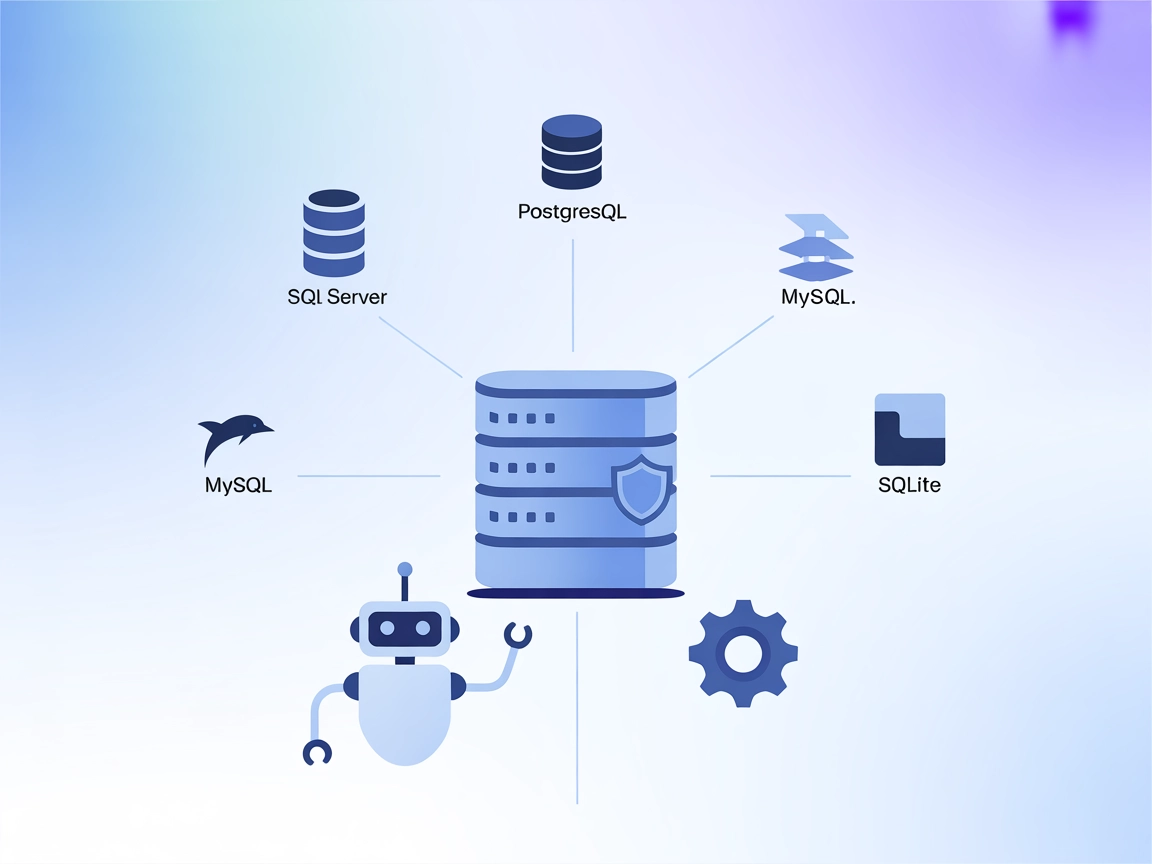
MCP-Grep MCP Server
MCP-Grep exposes the Unix grep utility as a Model Context Protocol (MCP) server, enabling AI assistants and developers to perform advanced text and pattern sear...

GreptimeDB MCP Server enables FlowHunt and AI agents to securely interact with GreptimeDB—list tables, run SQL queries, and automate analytics with ease.
FlowHunt provides an additional security layer between your internal systems and AI tools, giving you granular control over which tools are accessible from your MCP servers. MCP servers hosted in our infrastructure can be seamlessly integrated with FlowHunt's chatbot as well as popular AI platforms like ChatGPT, Claude, and various AI editors.
The greptimedb MCP (Model Context Protocol) Server is a tool designed to bridge AI assistants with GreptimeDB, a powerful time-series database. It enables AI agents to securely and efficiently interact with GreptimeDB by providing structured access to database functionalities. This includes capabilities such as listing tables, reading table data, and executing SQL queries—all through well-defined MCP primitives. By exposing these actions in a controlled manner, greptimedb-mcp-server enhances development workflows, allowing AI-powered tools and assistants to analyze, explore, and manage database content safely and programmatically. This approach fosters responsible data access while enabling rich, context-aware interactions for data analysis, reporting, and automation.
list_promptsget_promptlist_resourcesread_resourcelist_toolscall_toolGREPTIMEDB_HOST, GREPTIMEDB_PORT, etc.).{
"mcpServers": {
"greptimedb": {
"command": "greptimedb-mcp-server",
"args": []
}
}
}
{
"mcpServers": {
"greptimedb": {
"command": "greptimedb-mcp-server",
"args": [],
"env": {
"GREPTIMEDB_USER": "your_user",
"GREPTIMEDB_PASSWORD": "your_password"
}
}
}
}
pip install greptimedb-mcp-serverclaude_desktop_config.json (see README for path).{
"mcpServers": {
"greptimedb": {
"command": "greptimedb-mcp-server",
"args": []
}
}
}
greptimedb-mcp-server via pip.{
"mcpServers": {
"greptimedb": {
"command": "greptimedb-mcp-server",
"args": []
}
}
}
greptimedb-mcp-server as above.{
"mcpServers": {
"greptimedb": {
"command": "greptimedb-mcp-server",
"args": []
}
}
}
Always use environment variables (not plaintext in config) for sensitive credentials:
{
"mcpServers": {
"greptimedb": {
"command": "greptimedb-mcp-server",
"args": [],
"env": {
"GREPTIMEDB_USER": "your_user",
"GREPTIMEDB_PASSWORD": "your_password"
},
"inputs": {}
}
}
}
Using MCP in FlowHunt
To integrate MCP servers into your FlowHunt workflow, start by adding the MCP component to your flow and connecting it to your AI agent:

Click on the MCP component to open the configuration panel. In the system MCP configuration section, insert your MCP server details using this JSON format:
{
"greptimedb": {
"transport": "streamable_http",
"url": "https://yourmcpserver.example/pathtothemcp/url"
}
}
Once configured, the AI agent is now able to use this MCP as a tool with access to all its functions and capabilities. Remember to change “greptimedb” to whatever the actual name of your MCP server is and replace the URL with your own MCP server URL.
| Section | Availability | Details/Notes |
|---|---|---|
| Overview | ✅ | |
| List of Prompts | ✅ | list_prompts, get_prompt |
| List of Resources | ✅ | list_resources, read_resource |
| List of Tools | ✅ | list_tools, call_tool |
| Securing API Keys | ✅ | via env in config example |
| Sampling Support (less important in evaluation) | ⛔ | Not mentioned |
Based on the information above, greptimedb-mcp-server provides solid MCP primitives for database access, tooling, and prompt/resource management, but lacks explicit sampling/roots support. The documentation is clear, and setup is straightforward for several platforms.
I would rate this MCP server a 7/10 for its practical features, clear documentation, and security notes, but with room for improvement in advanced MCP features (sampling/roots) and more user-oriented prompt templates.
| Has a LICENSE | ✅ (MIT) |
|---|---|
| Has at least one tool | ✅ |
| Number of Forks | 8 |
| Number of Stars | 18 |
The GreptimeDB MCP Server enables AI assistants and agents to securely access and manage GreptimeDB, a high-performance time-series database, through structured MCP primitives such as listing tables, reading data, and executing SQL queries.
Use cases include database table discovery, data querying and analysis, contextual data retrieval for LLMs, automated reporting, and AI-assisted data management—streamlining analytics and operational workflows.
Always use environment variables for sensitive credentials like GREPTIMEDB_USER and GREPTIMEDB_PASSWORD in your MCP server configuration, instead of hard-coding them in plaintext.
Yes! The GreptimeDB MCP Server supports integration with all major FlowHunt-compatible clients. Just follow the relevant configuration instructions for each client.
Currently, the server focuses on core database access and does not explicitly support MCP sampling or roots features. However, it provides robust tools for querying, resource management, and automation.
Unlock powerful AI-driven data workflows by connecting your GreptimeDB instance to FlowHunt with the GreptimeDB MCP server. Explore, analyze, and automate your time-series data securely and efficiently.

MCP-Grep exposes the Unix grep utility as a Model Context Protocol (MCP) server, enabling AI assistants and developers to perform advanced text and pattern sear...

The MCP Database Server enables secure, programmatic access to popular databases like SQLite, SQL Server, PostgreSQL, and MySQL for AI assistants and automation...

The Model Context Protocol (MCP) Server bridges AI assistants with external data sources, APIs, and services, enabling streamlined integration of complex workfl...
Cookie Consent
We use cookies to enhance your browsing experience and analyze our traffic. See our privacy policy.